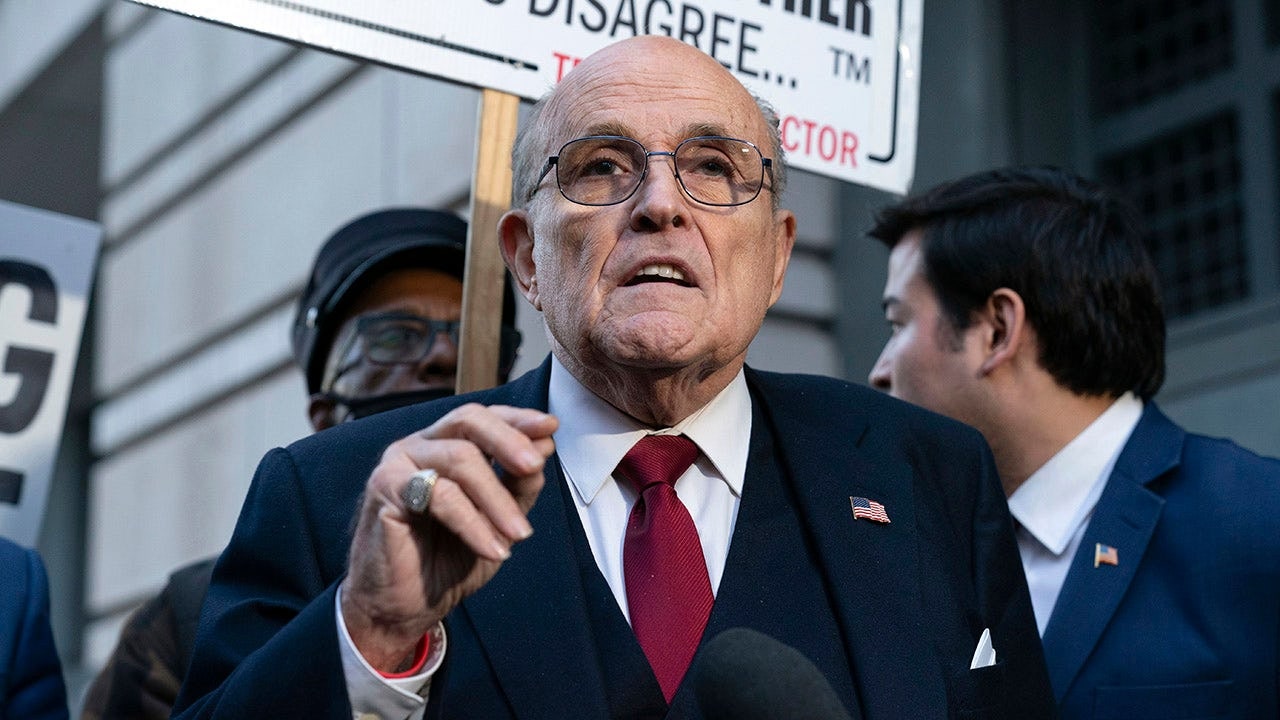Delaware
Delaware taps artificial intelligence to evacuate crowded beaches when floods hit

Delaware’s low elevation mixed with crowded beaches and limited exit routes make the state particularly vulnerable to massive flooding, but officials hope an influx of federal infrastructure money will trigger future evacuation plans automatically via artificial intelligence.
The Biden administration was set to announce a total of $53 million in grants Thursday to Delaware and seven other states aimed at high-tech solutions to traffic congestion problems. Although the money comes from the infrastructure law the president signed in 2021, many of the programs — including the $5 million for flood response efforts in Biden’s home state — have evolved since then.
“What’s new is the predictive analysis; the machine learning,” U.S. Federal Highway Administrator Shailen Bhatt, Delaware’s former transportation secretary, said in an interview with The Associated Press. “Because now we have access to all this data, it’s hard for us as humans to figure out what is data and what is actionable information.”
Beach weekend plans: Sun and water safety reminders
Delaware officials pull off evacuation-type procedures every week during the tourism season, with long lines of cars headed to the beaches on weekend mornings and back at night. But flooding presents a unique problem — including standing water on roads that can make the most direct routes out of town even more treacherous than simply sheltering in place.
“What you don’t want to do is make the decision too late and then you have vehicles caught out,” said Gene Donaldson, operations manager at the state’s 24-hour Transportation Management Center.
Delaware’s transportation department, which controls more than 90% of roads in a state with the lowest average elevation in the country, is tasked with implementing evacuation plans during high water — a bureaucratic nightmare considering how quickly conditions can change.
“For humans to monitor thousands of detectors or data sources is overwhelming,” said George Zhao, director of transportation for Arlington, Virginia-based BlueHalo, which has worked with Delaware on developing the software.
That’s where AI comes in. Rather than sending a crew to the scene to block an impassable road, the system uses sensors to detect weather threats — and even can predict them. Then, it sends the information directly to drivers through cellphone alerts while broadcasting them simultaneously on electronic highway signs.
The amount of data keeps growing, with many automated cars now able to not only inform their drivers of the dangers ahead but also feed the system to warn others.
Researchers at Missouri University of Science and Technology tested an earlier version of a flood prediction analysis system on the Mississippi River between 2019-22. Steve Corns, an associate professor of engineering management and systems engineering who co-authored the study, said the system was able to detect in minutes what used to take hours.
But now, Corns said, the capabilities are even more advanced and useful — provided they’re adequately funded so the technology doesn’t become obsolete.
Previous legislation had awarded more than $300 million in congestion relief grants, and Bhatt said the agency received $385 million in applications for the $52.8 million in the latest batch under the infrastructure law. He said that “shows huge appetite” for innovative solutions to tackle traffic problems.
Other payouts in this round of grants include $14 million for machine learning traffic prediction and signal timing in Maryland and $12.7 million to retrofit Ann Arbor, Michigan’s traffic system with cellular technology that could become a national template. It also includes $11.6 million to expand a microtransit service in Grand Rapids, Minnesota.

Delaware
Shuttered Taylor Hospital in Delaware County may soon reopen

Tuesday, September 9, 2025 1:38AM
Shuttered Delaware County hospital may soon reopen
RIDLEY PARK, Pa. (WPVI) — A shuttered Delaware County hospital may soon reopen its doors.
A group of private investors has entered into a deal to acquire Taylor Hospital in Ridley Park for $1 million.
MORE | Employees report for final shift at Taylor Hospital before it closes for good
In a social media post, one of the investing partners, Keystone Quality Transport, said a key goal of the acquisition is to restore essential medical services at the site.
Taylor Hospital closed in April after its parent company filed for bankruptcy.
The proposed deal requires court approval.
Copyright © 2025 WPVI-TV. All Rights Reserved.
Delaware
Delaware Lottery Play 3 Day, Play 3 Night winning numbers for Sept. 7, 2025

Claiming lottery in Delaware
18 states have laws that allow national lottery prize jackpot winners to remain anonymous, but is Delaware among them?
The Delaware Lottery offers several draw games for those aiming to win big. Here’s a look at Sunday, Sept. 7, 2025 results for each game:
Winning Play 3 numbers from Sept. 7 drawing
Day: 6-6-3
Night: 9-4-4
Check Play 3 payouts and previous drawings here.
Winning Play 4 numbers from Sept. 7 drawing
Day: 0-2-4-7
Night: 3-6-9-7
Check Play 4 payouts and previous drawings here.
Winning Multi-Win Lotto numbers from Sept. 7 drawing
05-13-16-23-30-34
Check Multi-Win Lotto payouts and previous drawings here.
Winning Lucky For Life numbers from Sept. 7 drawing
13-29-34-37-40, Lucky Ball: 09
Check Lucky For Life payouts and previous drawings here.
Winning Play 5 numbers from Sept. 7 drawing
Day: 9-8-2-3-6
Night: 0-0-5-2-5
Check Play 5 payouts and previous drawings here.
Feeling lucky? Explore the latest lottery news & results
Are you a winner? Here’s how to claim your lottery prize
- Sign the Ticket: Establish legal ownership by signing the back of your ticket with an ink pen.
- Prizes up to $599: Claim at any Delaware Lottery Retailer, in person at the Delaware Lottery Office, or mail your signed ticket and claim form; print your name/address on the ticket’s back and keep a copy/photo for records. By mail, send original tickets and documentation to: Delaware Lottery, 1575 McKee Road, Suite 102, Dover, DE 19904.
- Prizes up to $2,500: Claim in person at Delaware Lottery Retailer Claim Centers throughout Kent, Sussex and New Castle Counties.
- Prizes of $5,001 or more: Claim in person at the Delaware Lottery Office (business days 8 a.m. to 4 p.m.) with a photo ID and Social Security card.
- For all prize claims, directions to the Delaware Lottery Office are available online or via mapquest.com for a map.
Check previous winning numbers and payouts at Delaware Lottery.
Can I claim a jackpot prize anonymously in Delaware?
Fortunately for First State residents, the Delaware Lottery allows winners remain anonymous. Unlike many other states that require a prize be over a certain jackpot, Delawareans can remain anonymous no matter how much, or how little, they win.
How long do I have to claim my prize in Delaware?
Tickets are valid for up to one year past the drawing date for drawing game prizes or within one year of the announced end of sales for Instant Games, according to delottery.com.
When are the Delaware Lottery drawings held?
- Powerball: 10:59 p.m. Monday, Wednesday, and Saturday.
- Mega Millions: 11:00 p.m. on Tuesday and Friday.
- Play 3, 4: Daily at 1:58 p.m. and 7:57 p.m., except Sunday afternoon.
- Multi-Win Lotto: 7:57 p.m. Monday, Wednesday, and Friday.
- Lucky for Life: Daily at 10:38 p.m.
- Lotto America: 11:00 p.m. Monday, Wednesday, and Saturday
Missed a draw? Peek at the past week’s winning numbers.
This results page was generated automatically using information from TinBu and a template written and reviewed by a Delaware Online digital operations manager. You can send feedback using this form.
Delaware
Colorado Buffaloes Surprising Betting Odds Vs. Delaware After Loss

The Colorado Buffaloes suffered their first loss of the season against the Georgia Tech Yellow Jackets, 27-20. The defense came out firing, but the offense could not take advantage of the opportunities given to them.
The Buffaloes will next face the Delaware Fightin’ Blue Hens, who are coming off a 35-17 win against the Delaware State Hornets. The Buffaloes showed bursts of potential but must turn things around in week 2.
The Colorado Buffaloes are 24.5-point favorites on Daftkings Sportsbook aganst the Delaware Fightin’ Blue Hens.
The Colorado Buffaloes’ defense stepped up big time to start the game against the Yellow Jackets. The team took advantage of Georgia Tech’s mistakes, with linebacker Martavius French recovering two fumbles. However, the offense was unable to capitalize off of the Yellow Jackets turnovers outside of one touchdown.
The team limited the Georgia Tech Yellow Jackets to 13 completions for 143 yards. Returning cornerback DJ McKinney also caught an interception.
There are still areas that must be cleaned up as well, moving forward. The Buffaloes did well in preventing running back Jamal Haynes from gaining momentum. Haynes had 16 carries for 65 yards.
Where the defense does need to improve is stopping the quarterback from scrambling out of the pocket and taking it himself. King rushed for 156 yards and three touchdowns, and was a big factor in Georgia Tech winning. This is something that the defense needs to fix quickly.
It was quarterback Kaidon Salter’s first start with the Colorado Buffaloes, and while he finished the game with 159 passing yards and one touchdown, some improvements need to be made.
“I think we had success running the ball at times as well, but we missed a few plays that we should have hit. I think you all saw that, but overall, man, you got to give them credit,” Colorado coach Deion Sanders said after the game.
MORE: Deion Sanders Wants NFL-Style Bonuses—Why He Should Be New Voice of College Football
MORE: What Deion Sanders’ Uniform Choice Reveals About Approach to Colorado Buffaloes Brand
MORE: How Deion Sanders Turned Boulder Into One of College Football’s Elite Destinations
MORE: Why Colorado’s LaJohntay Wester Could Be NFL’s Next Star Wide Receiver
MORE: Colorado Buffaloes Make Statement With Stars Who Made NFL 53-Man Rosters
“They coached a heck of a game. They played a half a heck of a game. The quarterback started off horribly, but he picked it right back up and did his thing. Man, so hats off to him. He led his team to a victory.”
Salter must adjust to playing in larger stadiums moving forward. While Salter has experience as a starting quarterback, he could be seen covering his ears in his own stadium to listen to his play caller. With the first game out of the way, this is a big thing for Salter and the team to work on.
The Colorado quarterback showed that once he gets going, Salter can make strong plays. In the fourth quarter, Salter helped lead the offense downfield to tie the game.
The Fightin’ Blue Hens are 1-0, looking to stay undefeated in week two. Delaware is led by quarterback Nick Minicucci, who passed for 251 yards and three touchdowns. He also rushed for 44 yards and one touchdown, something the Buffaloes’ defense must watch out for.
Wide receivers Jake Thaw and Kyre Duplessis are going to be two big-time targets for Colorado to watch out for. Thaw had seven receptions for 92 yards and one touchdown, and Duplessis had seven receptions for 89 yards and one touchdown.
The Colorado Buffaloes have a fighting chance with their second game at Folsom Field, but they must take advantage of the opportunities given to them. The team also has to improve on clock management. While it cannot be said for sure that the final score would have changed, having two timeouts on the final drive and not using either did lead to the clock winding down on the team.
Despite the week one loss, the Buffaloes open up as favorites, and Colorado has a chance turn the season around quickly with a win.
The Colorado Buffaloes and the Delaware Fightin’ Blue Hens will kick off on Sept. 6 at 1:30 p.m. MT.
-

 News1 week ago
News1 week agoVideo: A Father Took His Daughters to School. Then Came the Gunshots.
-

 World1 week ago
World1 week agoThe Global Sumud Flotilla to Gaza: Everything you need to know
-

 Lifestyle1 week ago
Lifestyle1 week agoHow 3 Hawaiian teen princes brought surfing to the mainland
-

 Politics1 week ago
Politics1 week ago‘Nonsensical’ illegal immigrant tuition policy scrapped in Kentucky, Bondi lawsuit deal
-

 Movie Reviews1 week ago
Movie Reviews1 week ago‘Everywhere Man: The Lives and Times of Peter Asher’ Review: Documentary Traces a Remarkable Under-the-Radar Musical Legacy
-
News1 week ago
A community gathers for the first Mass after tragedy as questions still remain | CNN
-

 Politics1 week ago
Politics1 week agoVideo: Why Black Women Are Seeing Job Losses
-
Business1 week ago
Trump moves to cut more than 500 Voice of America employees despite court ruling























